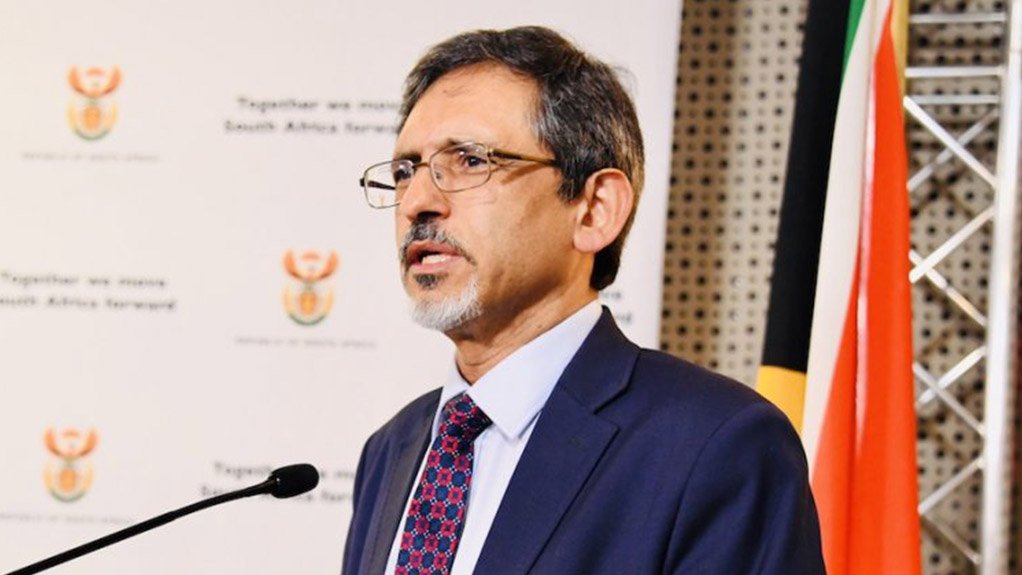The Department of Trade, Industry and Competition (DTIC) has published a statement in support of Trade and Industry Minister Ebrahim Patel, after media reports and public domain commentary created the impression that he had underplayed the extent of the lockdown costs on the economy.
The DTIC explained that, after an initial interview Patel had conducted with the Sunday Times, subsequent news articles and comments had created this impression. The interview with Sunday Times, in turn, followed the Minister addressing Members of Parliament around Covid-19 in a session that was broadcast live.
In the address to Parliament, Patel stated that the pandemic had caused a massive and rapid shock to the economy, starting globally and transmitted rapidly to South Africa and the rest of the continent, with a dual impact on the demand and supply-side of the economy.
Patel also said that the impact on gross domestic product (GDP) would be very significant, with an anticipated recession as a result of severe contraction in the economy this year. Additionally, he spoke about big job losses and firm closures with high levels of social hardship.
“Our work has indicated that the pandemic will affect the South African economy in very deep and significant ways. The estimates of the impact vary. The work is still being done as we see the extent to which different parts of the economy are affected.”
The DTIC said Patel had illustrated, with estimates from the International Monetary Fund, South African Reserve Bank and Industrial Development Corporation, a projected 6% contraction in GDP.
In the interview with the Sunday Times, the DTIC reports, Patel had made the point that it was too early to get a firm figure on the exact extent of the damage given a range of projections by different economists.
“Such a figure is at best a guesstimate of the impact since the full extent of the cost would depend on a number of factors; it did not take into account that key sectors were working during the lockdown, including agriculture, food processors, healthcare and parts of mining,” he stated.
The DTIC believes the subsequent media story after the interview did not contextualise the reply adequately, as it focused on only the Minister’s cautioning of this particular estimate.
The DTIC further defended the Minister, stating that on May 8 he had addressed a meeting of about 100 CEOs, informing them that the pandemic was likely to have a devastating effect on the economy, though the extent of the damage was not yet clear; that many firms in South Africa were in difficulty as a result of the current circumstances; and that millions of workers were without an income.
“We would like to reiterate that [the Minister] had consistently put forward the view on the devastating impact of Covid-19 on the South African economy since the declaration of the national disaster.
“He pointed out already on March 24 at a media briefing that the pandemic would put a strain on the economy, including small business owners and ordinary citizens,” the DTIC said.
Further, the DTIC remarked that it was imperative that there was a more measured and responsible public commentary during these trying times in the country, given the enormous consequence on human lives if the country were to "get it wrong".
EMAIL THIS ARTICLE SAVE THIS ARTICLE ARTICLE ENQUIRY
To subscribe email subscriptions@creamermedia.co.za or click here
To advertise email advertising@creamermedia.co.za or click here











